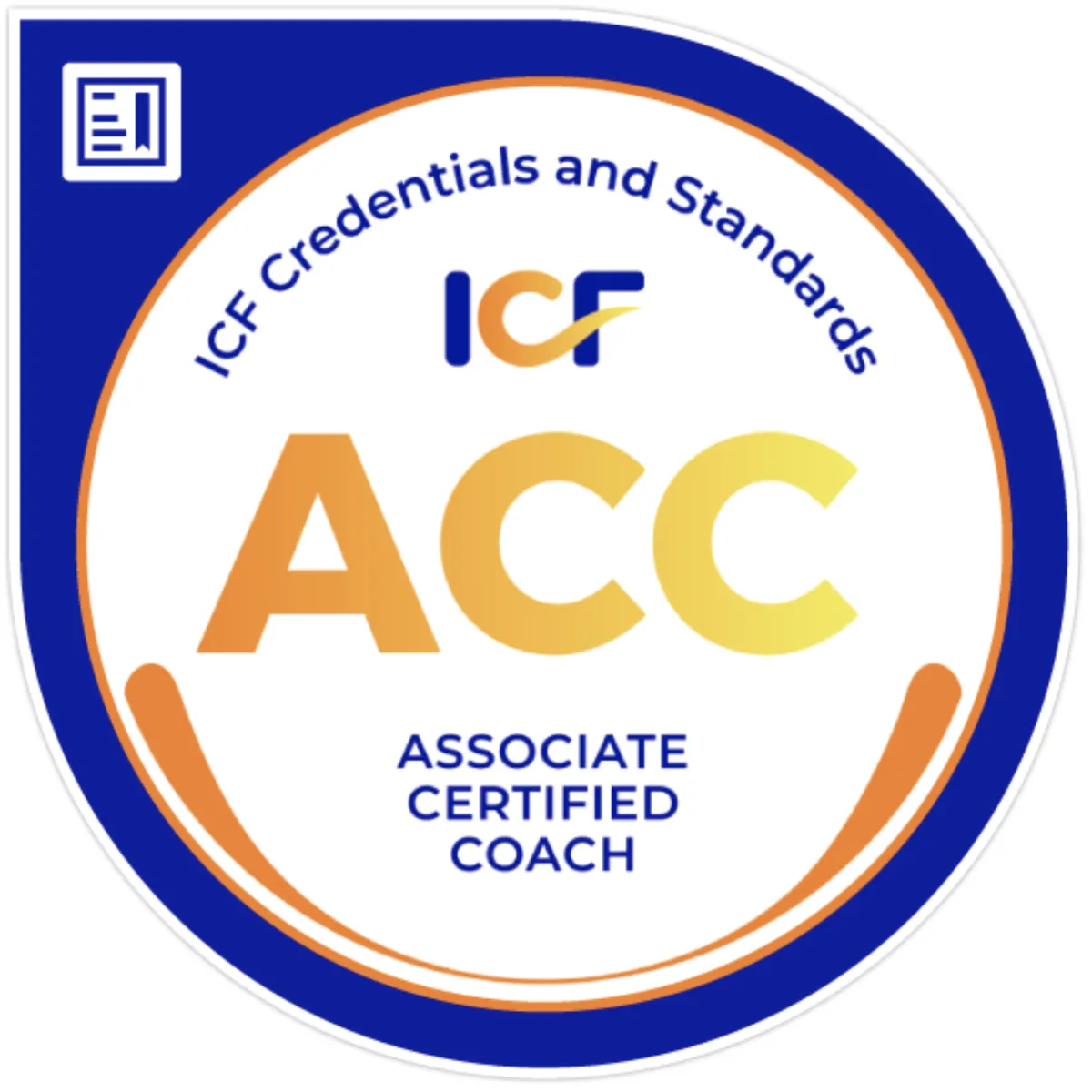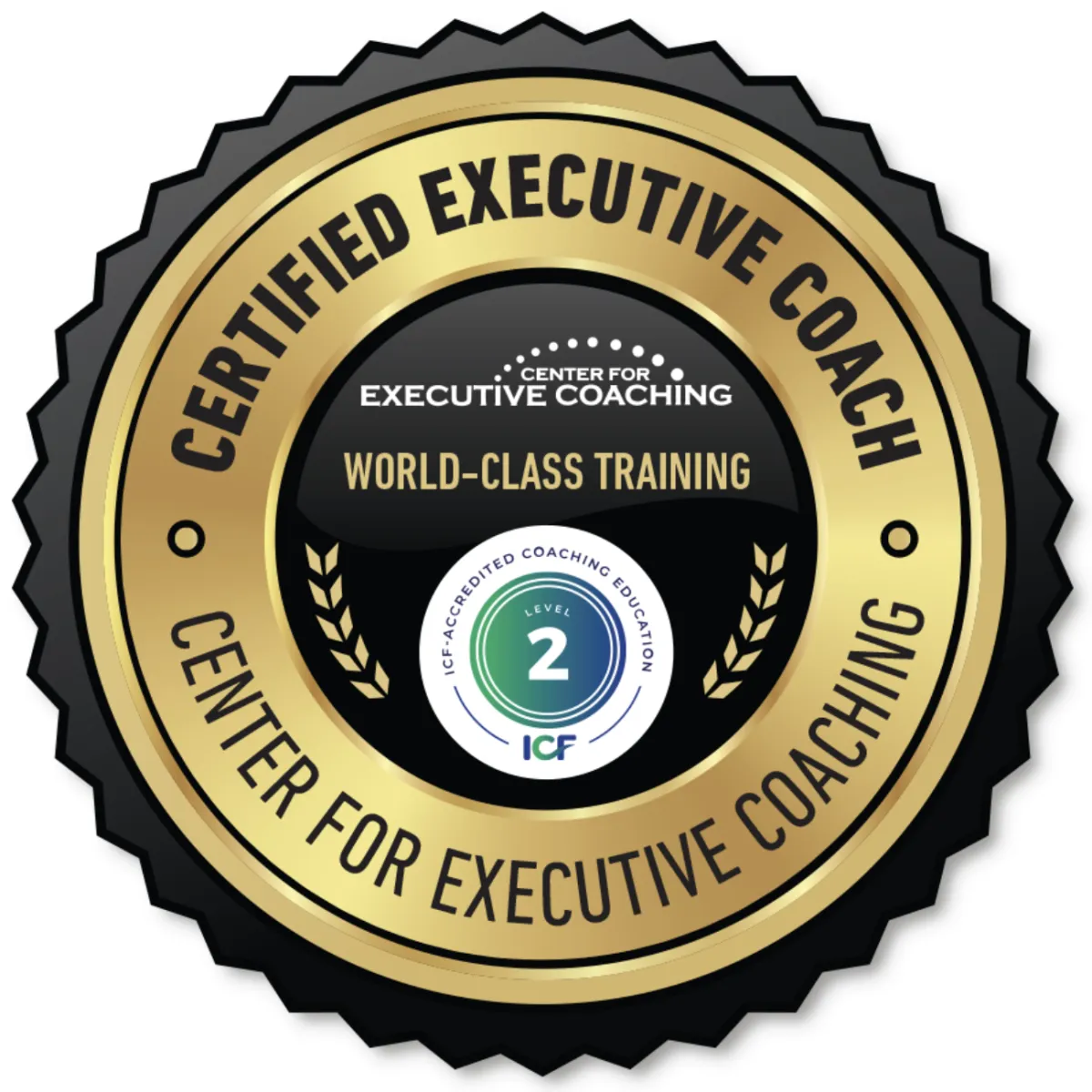How Happy Are YOU?
FREE Life & Career Happiness Quiz


Busting Impostor Syndrome in Midlife Career Women: Your Success is NO Fluke!
Are you a professional 40+ woman who's done some amazing things in your career, yet deep down worry that somehow you're not quite good enough?
Ever felt like a bit of a fraud while climbing the corporate ladder, like maybe you don't deserve the success, even though you're actually rocking it?
Ever had that niggling doubt, "Did I just get lucky or am I actually this good?"
If any of these sound familiar, you might have been dealing with a dose of Impostor Syndrome!

Impostor Syndrome isn’t just the occasional doubt. It’s that persistent voice inside whispering, "Do you truly belong in this room?" It's when you credit your hard-earned accomplishments to luck or chance, rather than your competence and effort. It's the unsettling fear of being 'found out', as if you're putting on an act rather than genuinely owning your role.
What does Impostor Syndrome look like?

Belief in Luck, Not Skill: You think you merely "stumbled upon" success, that you got lucky?
Feeling Overwhelmed & out of your depth. You continually feel like you're treading water, trying to keep your head up & not drown, no matter your expertise?
Fear of Exposure: You worry that colleagues or your boss will eventually discover you're not "good enough" & unmask you?
You're Not Alone! And the the irony? ... Many highly accomplished women, just like you, feel like this & grapple with similar feelings. But the truth is, your achievements are NOT flukes. They’re tangible results of your perseverance, innate talents, and valuable experiences. Your success isn't an accident. It's all you - your dedication, talent, and know-how!
Spotting the Signs of Impostor Syndrome

We often overlook the signs of impostor syndrome that come up in our day-to-day lives. However, recognising these signs is the first step toward overcoming them. You might be suffering from impostor syndrome if:
You feel like you "got lucky" when you actually prepared well and worked hard.
You find it hard to accept praise.
You apologise for yourself when you didn't actually do anything wrong.
You hold yourself to incredibly, sometimes impossibly, high standards.
You find the fear of failure paralysing.
You avoid expressing confidence because you think people will see it as overcompensating or obnoxious.
You're convinced you're not enough.
People close to you say you're not as confident as you used to be.
You turn down opportunities for growth or visibility at work.

Pay attention to your language choices, both when you're talking to other people and when talking to yourself—especially when it comes to talking about work. If you find your own success or the praise others give you uncomfortable, do some reflective thinking on where those types of thoughts came from and what they mean in your professional life.
Red Flags of Impostor Syndrome

1. The Achievement Dismissal
Believing you "struck gold" when in reality, you've meticulously prepared for it. Have you ever looked at your impressive achievements and secretly brushed them off as mere luck or being in the right place at the right time? This tendency to downplay your accomplishments instead of acknowledging your skills and efforts is a clear sign of Impostor Syndrome. It's almost as if you're hesitant to give yourself credit, attributing your successes to external factors while ignoring your own hard work. This can be especially damaging to your self-confidence and hinder your ability to see yourself as the capable professional that you truly are.
2. Comparison Complex
Over- Apologizing and saying "sorry" frequently, even when it's unwarranted. The Comparison Complex can be a relentless companion on your career journey. Do you often find yourself sizing up your achievements against those of your colleagues, assuming they've got it all figured out? This habit of constant comparison can leave you feeling inadequate, despite your own accomplishments. It's important to recognise that everyone's journey is unique, and comparing your progress to others is a surefire way to undermine your self-confidence and fuel Imposter Syndrome. Remember, your path is your own, and you bring a wealth of skills and experiences to the table.
3. Perfectly Imperfect
Setting almost unreachable standards for yourself leads to undue stress. The fear of making mistakes can be paralysing, stopping you from taking risks or exploring new opportunities. If the thought of not achieving perfection holds you back, Impostor Syndrome might be at play. Embracing imperfections and learning from mistakes is an essential part of personal and professional growth. By letting go of the need to be flawless, you create space for authentic progress and development, building genuine self-confidence along the way.
4. Downplaying Achievements
Habitually brushing off compliments or feeling undeserving of praise. Imagine accomplishing something remarkable, only to quickly attribute your success to luck, timing, or other external factors. This habit of downplaying your achievements can be a clear indication of Impostor Syndrome. Instead of recognising your skills and efforts, you undermine your own capabilities, leaving you feeling like you're not deserving of your accomplishments. It's crucial to break free from this pattern and start giving yourself the credit you truly deserve.
5. Avoiding Risks
An intense fear of failure that holds you back from embracing new challenges or roles. The fear of being exposed as less competent than others perceive you to be can be a heavy burden. It's as if you're constantly worried that the facade of confidence you present will crumble, revealing your perceived inadequacies. This fear can lead to constant anxiety and self-doubt, robbing you of the opportunity to truly shine in your career. It's essential to address this fear head-on and recognise that everyone has moments of uncertainty – it's all part of the journey toward growth and self-improvement.
10 Strategies for Overcoming Impostor Syndrome

Impostor Syndrome has a cunning way of sneaking in to stop us from celebrating our wins & realising our full potential. However, with awareness and the right strategies, you can diminish its power:
Getting rid of impostor syndrome isn't as easy as positive self-talk and a can-do attitude. While those things are helpful, you'll need to dig a bit deeper to uncover ways to overcome this debilitating mindset.
Understanding is the first step to combating Impostor Syndrome. Recognize it, challenge it, and most importantly, believe in your worth.
Remember, it's natural to doubt ourselves occasionally, but with some easy-to-implement strategies, you can reclaim your confidence and stand proudly in your achievements! Here are some of my favorites:
1. Daily Affirmations: Speak positivity into your life
Our minds are like gardens; what we plant grows. By using daily affirmations, you're planting seeds of positivity, confidence, and self-assurance. Imagine starting each day with words like, "I am competent," or "I am deserving of my accomplishments." Over time, these affirmations become deeply ingrained beliefs, countering negative thoughts and giving you a confidence boost.
2. Celebrate Your Achievements: Big or small, they all count
Sometimes, in the hustle of life, we overlook our successes, focusing only on what’s next. Pause and take a moment to cherish what you've achieved. Celebrating your wins, no matter how small reminds you of your capabilities and reinforces the fact that your achievements are well-deserved.
3. Keep Learning: Embrace growth
Knowledge is power. When you're constantly learning, you're bolstering your expertise and skills. This not only makes you more competent in your field but also arms you against feelings of inadequacy. Think of learning as an ever-evolving shield against doubt, keeping you current and self-assured.
4. Set Real Goals: Step-by-step, you'll get there
Setting tangible, achievable goals breaks the journey into manageable steps. Each time you achieve a goal, it serves as proof of your abilities and a reminder of your progress. Instead of vague aspirations, clear milestones give you a roadmap to success and a way to track your growth.
5. Lean on Your Circle: Talk to friends or mentors
You're not alone in your feelings. Sharing your experiences with friends or mentors provides validation, perspective, and often, solutions. These conversations remind you that everyone, even the most successful individuals, has moments of doubt. Through shared experiences, you'll find support and strategies to overcome your imposter feelings.
6. Be Kind to Yourself: Everyone stumbles
Perfection isn't realistic. Everyone, no matter how accomplished, faces setbacks. Instead of berating yourself, practice self-compassion. Remember, every setback is an opportunity for growth. Treat yourself as you would a close friend: with understanding, patience, and encouragement.
7. Track Your Progress: See how far you've come!
Maintaining a record of your achievements, feedback, and progress provides tangible evidence of your abilities. Whenever doubt creeps in, revisit this record. It serves as a visual reminder of your journey, showcasing how much you've grown and achieved over time.
8. Be Authentic: You're unique, and that's your power
Your uniqueness is your strength. Instead of comparing yourself to others, embrace what sets you apart. By being genuine and true to yourself, you build trust, form deeper connections, and stand out in your own right. Authenticity breeds confidence, reminding you of your unique value.
9. Positive Self-Talk: Flip the script on negativity
It's easy to be your harshest critic. But imagine if you become your biggest cheerleader. Replace negative self-talk with encouraging words. By consciously changing the narrative in your head, you foster a positive self-image, strengthening your belief in your capabilities.
10. View Failures as Growth: Mistakes happen; they're stepping stones, not barriers
Failure isn't the opposite of success; it's part of the journey. Each misstep offers valuable lessons, molding you into a wiser, more resilient individual. Instead of dwelling on mistakes, view them as growth opportunities, reshaping challenges into stepping stones towards success.
Wrapping up: You are a Midlife Rockstar, so own your fabulousness!

All you rockstar ladies over 40 who’ve been haunted by that sneaky Impostor Syndrome, It's high time we kick those doubts to the curb and truly own our magic.
Think about it... We have a tonne of experience & all those challenges along the way. We tackled them!
Those life & career milestones? We crushed them!
You're not just here by fluke; you've earned your spot with every triumph & hurdle you've overcome.
So the next time that little voice of doubt tries to sneak in, give it a sassy side-eye and remind yourself, "I've got this! I'm right where I belong! & I'm rocking it!" 💃✨
Executive Coaching
Leadership
Development
Career Growth & Transitions




Executive Coaching
Leadership
Development
Career Growth & Transitions

Legals
© 2024 Evolve & Thrive. All Rights Reserved
Join the Evolve & Thrive Tribe
Our community of Midlife Women who want MORE out of life!
Success, Freedom, Balance, Happiness & Fun!
Join the Evolve & Thrive Tribe
Our community of Midlife Women who want MORE out of life!
Success, Freedom, Balance, Happiness & Fun!
Legals
© 2024 evolve&thrive
All Rights Reserved

